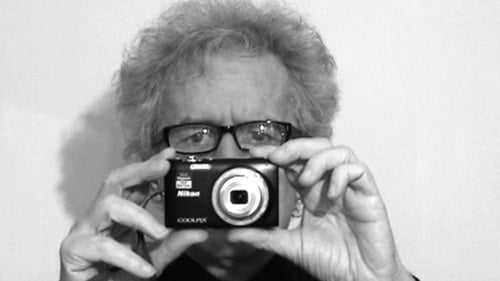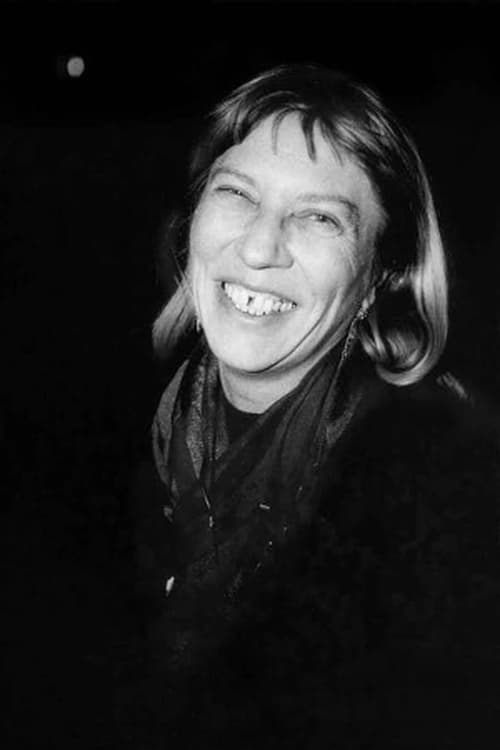Frédérique Devaux
Рождение : 1956-01-01, Paris, France
История
Frédérique Devaux is a French-Berber experimental filmmaker. Since the early 1980s she has been one of the most internationally well-known representatives of Lettrist cinema. She has devoted several works to the Lettrist movement, the cinema and monographs. Together with Michel Amarger, she is the co-author of a series of film called ‘Expérimentaux’.

Director
When advertising, big brands and the commercial market bombard us… Escape? revolt? get involved? become outraged?

Director
The town, lights, sounds, movements. The town...

Director
While filming a portrait of Dutch filmmaker Jaap Pieters, he evoked memories of a Lebanese friend who had disappeared, and his desire to trace his footsteps / to track him down. This project matched our own desire to learn about the state of Lebanese cinema today. We offered Jaap Pieters to travel together to Lebanon to seek out filmmakers doing research on the moving image. We met Mahmoud Hojeij, Nadim Tabet, Ghassan Salhab, Nesrine Khodr and Lamia Joreige.

Director
Christophe Karabache is an independent French-Lebanese filmmaker born in Beirut in 1979. In 2000, he began exploring various film formats at l'Etna, an alternative workshop in Paris. He shifts between documentary and fiction formats, bringing to mind the wounds of Lebanese society, displaced beings, the fragmentation of identity. Pulsating scenes and jolting cuts demonstrate his desire to destroy cliches. The shock of the imagery in his feature-length films, made after 2010, bears witness to a penetrating critical eye on Lebanon's cultural shifts and the rupture of meaning.

Director
Stephen Dwoskin was born in New York in 1939 and began making independent shorts there in 1961. In 1964 he followed his research work to London where he settled and participated in the founding of the London Filmmaker’s Co-op. His experimental films, for which he himself does the camera work, play with ideas of desire, sexual and mental solitude and the passage of time. In his films he also explores representation in cinema, performances, personal impressions and his own physical handicap which has been a source of inspiration for him throughout his career. His sensitive and emancipating works have been the subject of various international presentations.

Director
K (Acugher/Acimi) (K Pourquoi? Pourquoi?) is the last film of the 'K' series. Each frame of film was placed individually in the printer; the film consists in fact of individual frames, developed one by one (rather than a conventional camera roll), and placed at random on the printing stock. The question posed by the film is: how can one describe the position of the Algerian administration vis-a-vis Kabylie, which has been completely abandoned by central government? It's like a game of poker, is it not ... with the only possible response one of desolation and incomprehension. An original composition by Mr. Djamel Tareb will form the musical sound-track for the film.

Director
Two-thirds of K (Exil) consists of images of the women and children who remain at home, alone, while the men leave for a life of exile. These images, always fragmentary (either cut-up or inserted piece by piece within the image as a whole), alternating between negative and positive, complementing or contradicting each other - give an insight into the wrenching separation experienced by those members of the population who remain at home, left to their fate in an inhospitable landscape. Over what we call the 'joints', we will engrave words in French or Kabyle (Berber), echoing the masculine voices of Rachid Adel and Michel Amarger. An original composition by Mr. Djamel Tareb will form the musical sound-track for the film.

Director
In this part, I'm dealing with the relationship of the Kabyles with the dream of elsewhere. To reach that aim, I shot a lot in Kabilye, and also in other countries. Through superimposition, the approach between the positive and the negative, tape-to-film work, a research into colour and some very tight editing in which I intercalate some articles about the kabyle cauldron, as well as other effects, I try to give shape to these visions of an elsewhere, that are passing, changeable, often false. While printing the film, I worked a lot on the diaphragm, going voluntarily from overexposure to underexposure, in order to render the blindness (that is the fever) and the ignorance of some populations about this elsewhere that they believe is an El Dorado.

Director
K (Désert) is the forth part of a series on Kabylia, including a documentary and a feature film. K (Désert) examines the fragmentation of a culture (Berber culture) through the Algerian desert populations by means of collage. Shot in 8mm and blown-up on 16mm film, the groundwork has been reworked by layers in the optical printer.

Director
Marcel Hanoun, one of the most innovative of filmmakers, gives us what he names "a lesson in cinema." Frederique Devaux and Michel Amarger filmed this piece at his country house, composing an abundantly rich portrait. Film clips and sparks of theoretic bravura testify to the feverish creativity and the drunken agitation behind which lurks the ever-composed voice of the filmmaker.

Director
Les Deux Lucy is a short documentary portrait of the shooting of Raphaël Bassan's film Lucy en miroir. It's the opportunity for us to look at one of our contemporary filmmakers and important film critics of what we call in French cinémas differents, meaning a different way of making films. Our making of offers the opportunity to follow, step by step, the making of this short film with scenes shot on the set, and to listen to comments by the filmmaker about his work.

Sound
The fortuitous meeting of two women to the identical first name, Lucy, who formerly loved the same man, Jonathan, induced, in this film, of the polysemous variations on the memory, art, and the difficult relationship between creation and emotional life. Dehumanized by an exclusive artistic practice, the man lost his reference marks little by little. "Lucy en miroir" wants to be, also, a shifted and transverse second reading of "The Contempt" ("Le Mépris") of Godard, by a step more plastic than analytical or conclusive.

Editor
The fortuitous meeting of two women to the identical first name, Lucy, who formerly loved the same man, Jonathan, induced, in this film, of the polysemous variations on the memory, art, and the difficult relationship between creation and emotional life. Dehumanized by an exclusive artistic practice, the man lost his reference marks little by little. "Lucy en miroir" wants to be, also, a shifted and transverse second reading of "The Contempt" ("Le Mépris") of Godard, by a step more plastic than analytical or conclusive.

Director
16mm experimental short.

Director
K, for Kabylie, is a chronicle in several parts. Chronicle of a fragmented childhood between two countries, memory shredded by separation and abandonment. Chronicle also of the return, of a country broken by the central power (the demonstrations of the region of Tizi Ouzou in particular made tens of deaths), loneliness of the women and the children who fight each day for their survival. This is my family trajectory but it is above all that of a country with "murderous power" as all Kabyle children and adults sing.

Director
K3 (Les Femmes) is dedicated to the Kabili women of North Africa. The artist superimposes images and sounds to highlight the difficulty these women face in proclaiming their identity. The film projects activities of Kabili women which usually include the raising of children, the family, and the household. Erased from the exterior society, their marginalisation is depicted through the fading in and out of images and sounds. However, within their own private spaces, they remain loyal, they sing, dance, and resist a society that does not take into account their full value.

Director
Rose Lowder is an artisan of cinema. Her 16mm camera takes the place of a loom for the weaving of images. She has consecrated her life to these tapestries, these embroideries whose motifs have for many years come from nature, in a state of incessant becoming. Like her elders, the Impressionist painters, she renders her bouquets stroke by stroke, image by image, color after color, to give life to her pointillist compositions in motion.

Director
K is a chronicle and an experimental biography. Each part of K is centered around a particular problem: childhood, demonstrations in Kabylia, women… At the breaking up of a family (K Il est une fois…) echo the scattered pieces of a Kabylia torn by struggle and demonstrations (K Les Luttes Amazigh), especially in the region of Tizi Ouzou, our family home. Amazigh means Free Man in our language, which is more relevant than ever in this short film.

Editor
Portrait of experimental filmmaker Nicolas Rey.

Director
Portrait of experimental filmmaker Nicolas Rey.

Editor
Portrait of experimental filmmaker Martine Rousset.

Director
Portrait of experimental filmmaker Martine Rousset.

Director
"Bri(n) d'images is composed in the form of a mosaic. Playing on the transparency effects of the film and the color inks used, it is more like a stained glass film. This work of plastic composition is accompanied by music itself made of fragments from 'Amériques' by Varèse" — Vincent Deville & Pip Chodorov

Director
1999, 16mm, 01'30", color, silent, France

Director
“Smashed up images, beginnings and ends of shots, interventions at different levels, reframings, various formats (8mm, Super 8, 16mm ...), blurred images, flashes of color and light. Crackling visions. Visions and derisions of the filmmaker’s life, filmed in Super-8 and embedded into banal 16mm images from Zorro or porn films. An illusion play of shots reworked on the optical printer. The sound, quieter, like another layer of memory, is filled with well-known songs. Something else thus unfolds in the contrapuntal contrast between picture and sound.” — Michel Amarger

Director
Imagogie (from words: image and demagogy) was made with 16mm and super8 inside 16mm.

Director
On an idea by Maurice Lemaître. Polyatomic assembly.

N°1991
Синематон» - 201-часовой фильм французского режиссёра Жерара Куранта. Он считается одним из самых длинных фильмов когда-либо выпущенных. Создающийся более 35 лет (с 1978 по 2018), он состоит из серии 3027 беззвучных виньеток, каждая продолжительностью по 3 минуты 25 секунд, в которых показываются различные знаменитости, художники, журналисты и друзья режиссёра, каждый делающий то, что он хочет, за отведённое время. В фильме показаны режиссёры: Барбет Шредер, Нагиса Осима, Фолькер Шлендорф, Кен Лоуч, Юсеф Шахин, Вим Вендерс, Джозеф Лоузи, Жан-Люк Годар, Сэмюэл Фуллер и Терри Гиллиам; гроссмейстер Жоэль Лотье и актёры Роберто Бениньи, Стефан Одран и Жюли Дельпи. Терри Гиллиам показан поедающим купюру в 100 франков. Сэмюэл Фуллер курит сигару. Своим любимым героем фильма Жерар Курант считает семимесячного ребёнка.

Director

Director
Stéphane Marti is a teacher and film-maker who, since 1976, has been expounding the plasticity of experimental cinema, freeing it from the dominant codes of narrative cinema. An avid defender of Super-8mm film (which he has been using for 30 years), he has fought for the acknowledgement of its excellence as a film-making tool. His work, which screens in festivals and at international events, has been the subject of numerous interviews and articles. Flamboyant, baroque and sensual, his work revolves primarily around the question of the body and the sacred.

Director
Portrait, alternating interviews and extracted from Pip Chodorov's films who evokes its conception of the experimental movies, the links of some of his films with photography. Their character, sometimes improvised, sometimes composed. He’s and editor's activities of videocassettes Re: Voir.

Director
Vivian Ostrovsky is a nomad film-maker, born in New York. Student in Brazil then in Paris, which takes its camera of continent in continent since 1980. Her work, in the border of the documentary and the experimental, touches the filmed journals and is interested in the individuals rather than in the masses, in the physical language, in the unusual of the situations and in the sensible editing of the images and the sounds.

Director
The intentional ghost image, "mechanic chiseling", was obtained in camera by the effect of voluntary spinning.


